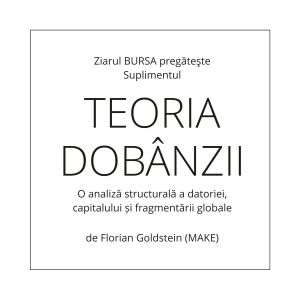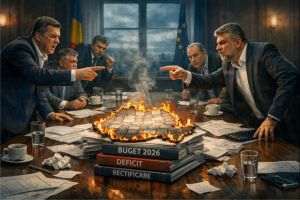The violation of electoral law and the illegal financing that Călin Georgescu benefited from in the electoral campaign are the reasons why the Constitutional Court of Romania decided by Decision no. 32 of December 6 to annul the presidential elections and restart the entire electoral process from scratch.
The CCR decision practically establishes that the 2.2 million votes obtained by Călin Georgescu on November 24 were not freely expressed, according to constitutional provisions, because voters were manipulated by the aggressive campaign he carried out on social networks, especially on TikTok, an illegal campaign, because he did not respect the provisions of the electoral law regarding promotion during this period. Moreover, paragraphs 14, 15 and 16 of the motivation of the CCR decision, which spans 9 pages, are clear:
"14. In the present case, the freely expressed nature of the vote was violated by the fact that voters were misinformed through an electoral campaign in which one of the candidates benefited from aggressive promotion, carried out in circumvention of national electoral legislation and through the abusive exploitation of social media platform algorithms. The manipulation of the vote was all the more evident as the electoral materials promoting a candidate did not bear the specific signs of electoral advertising according to Law no. 370/2004. In addition, the candidate also benefited from preferential treatment on social media platforms, which had the effect of distorting the expression of the will of the voters.
15. Equality of opportunity must be guaranteed to all candidates and parties and must stimulate the state to adopt an objective and impartial attitude towards them and to apply the same legislation fairly to all. Expenditure on electoral advertising may be limited in order to guarantee equality of opportunity (see also points 18 and 21 of the Explanatory Report to the Code of Good Practice in Electoral Matters. Guidelines and Explanatory Report, adopted by the European Commission for Democracy through Law (Venice Commission), at its 52nd plenary session (Venice, 18-19 October 2002)). At the same time, equality of opportunity must also be assessed in the light of the electoral behaviour of the competitors, with regard to the use of social networks, new technologies, artificial intelligence systems and the financing of the electoral campaign.
16. In the present case, having regard to the provisions of Article 37 of the Constitution, the Court notes that the equality of opportunity of the electoral competitors has been affected, which reflects an alteration of the very right to be elected. The irregularities in the electoral campaign affected the electoral competitors, since they created a clear inequality between the candidate who manipulated digital technologies and the other candidates participating in the electoral process. Thus, the significant exposure of a candidate led to a directly proportional reduction in the online media exposure of the other candidates in the electoral process. However, the use of digital technologies and artificial intelligence, both by candidates or electoral competitors, and by political parties, their supporters or sympathizers, must be transparent in order to guarantee the integrity and impartiality of the elections. Otherwise, voters are prevented from forming an opinion about the candidates and the electoral alternatives or may be misled regarding the identity and quality of the candidate or the voting procedures. Therefore, the use of such practices in an electoral process by electoral competitors, including political parties, vests the competent public authorities, according to the law, to verify, ascertain and, where appropriate, sanction such conduct".
Furthermore, the Court "takes note of the fact that a candidate violated the electoral legislation regarding campaign financing for the presidential elections".
Paragraph 18 of the reasoning of the CCR decision states: "Thus, the statements submitted to the Permanent Electoral Authority by one of the candidates regarding his campaign budget, which he reported as zero lei, are in contradiction with the data presented in the "Information Notes" of the Ministry of Internal Affairs - General Directorate of Internal Protection and the Romanian Intelligence Service. However, it is well known that an electoral campaign involves significant costs and expenses, and the analyzed situation reveals an obvious incongruity between the scale of the campaign conducted and the inexistence assumed by the candidate regarding the expenses incurred. The principle of transparency in the financing of the electoral campaign was thus violated, raising suspicions regarding the fairness of the conduct of the elections.
All these reasons led the CCR's nine judges to unanimously decide to cancel the presidential elections of November 24 and December 8.










































